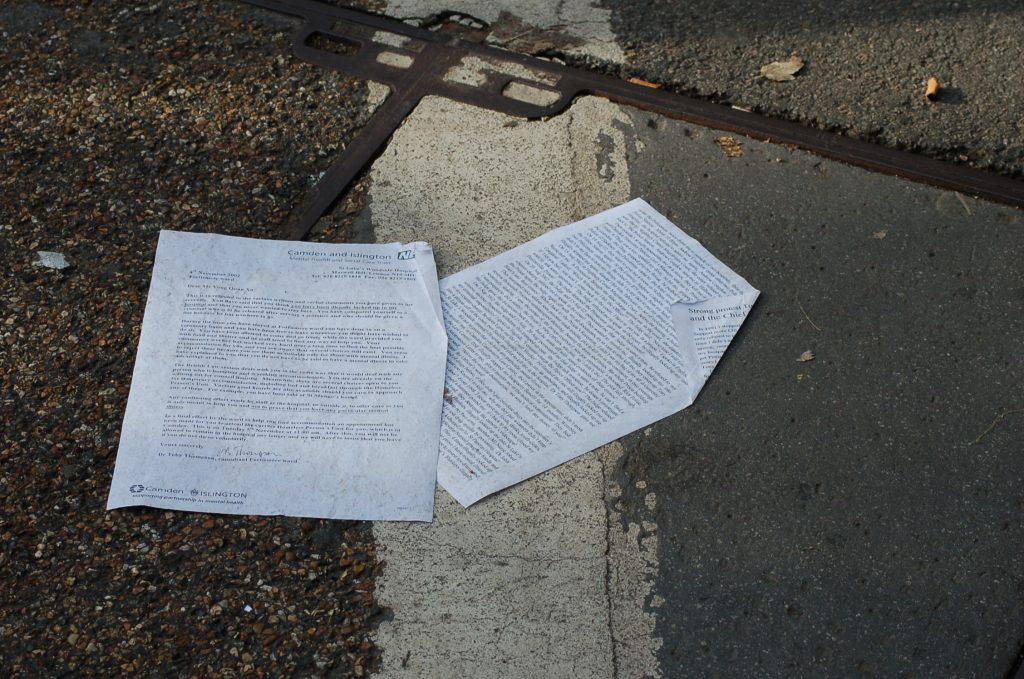 Insurance policies can still be intact even if the insured fails to pay if the insurance company fails to follow the proper protocol in informing the insured that he or she no longer has coverage. State Farm found themselves liable for coverage in just a situation.
Insurance policies can still be intact even if the insured fails to pay if the insurance company fails to follow the proper protocol in informing the insured that he or she no longer has coverage. State Farm found themselves liable for coverage in just a situation.
Thomas Sapp was insured under a Florida State Farm policy. The policy ran from December 3 until June 3, 2008, and the policy was renewed thereafter for consecutive six-month terms. Sometime during Sapp’s insurance coverage, Sapp moved from Florida to New Orleans, Louisiana. State Farm was aware of his move. On August 15, 2009, Sapp was involved in an automobile accident with Roderick Lee. Subsequently, Lee sued Sapp and State Farm seeking damages for his personal injuries incurred in the accident as the result of Sapp’s alleged negligence. State Farm denied coverage, arguing that the policy was not renewed.
In support of State Farm’s claim that they were not responsible for Lee’s damages because the policy was not renewed, State Farm presented evidence that Sapp was no longer covered by State Farm because Lee stopped making payments in February of 2009. In response, both Lee and Sapp argued that the State Farm policy was still in effect because State Farm did not send the legally required notice of cancellation for renewal. The trial court agreed with Lee and Sapp, and granted their motions for partial summary judgment, while denying State Farm’s motion for summary judgment. The Louisiana Fourth Circuit Court of Appeals agreed with the trial court and affirmed. In determining the claim, the Fourth Circuit recognized that although the incident occurred in Louisiana, the Court had to apply Florida law because the contract arose out of Florida. However, the Court also noted that even if the Court were to have applied Louisiana law the outcome would have been the same.
 Louisiana Personal Injury Lawyer Blog
Louisiana Personal Injury Lawyer Blog


 Anytime you get in a car can be a life and death situation. While no one ever wants to think about the worst, what will your insurance cover if the worst does happen. Your policy may not only need to cover you and those injured, it could need to cover your employer if you were driving in the scope of your employment.
Anytime you get in a car can be a life and death situation. While no one ever wants to think about the worst, what will your insurance cover if the worst does happen. Your policy may not only need to cover you and those injured, it could need to cover your employer if you were driving in the scope of your employment.


 A fire at a building you own cannot only damage your property but others as well. So what happens when a fire starts at your property and then quickly spreads to others, are you liable for their losses as well? The following case demonstrates what happens in court when a piece of real estate catches fire, causing damage to a neighboring property.
A fire at a building you own cannot only damage your property but others as well. So what happens when a fire starts at your property and then quickly spreads to others, are you liable for their losses as well? The following case demonstrates what happens in court when a piece of real estate catches fire, causing damage to a neighboring property.  The case may have seemed simple enough to the courts at first: interpret a contract. The main question in the case before the U.S. Court of Appeals for the Fifth Circuit was whether to apply the business’ projected income versus the actual income when calculating the coinsurance reward. The Court had to determine whether the language in the insurance policy and contract was clear as to which income it referred to. The Court applied Louisiana law, and indicated that courts must apply the contract as a whole, rather than in separate parts. The Court also applied the same law, which prior Louisiana Supreme Court decisions established, in determining that a court must enforce a contract as it is written when the contract’s meaning is clear and unambiguous.
The case may have seemed simple enough to the courts at first: interpret a contract. The main question in the case before the U.S. Court of Appeals for the Fifth Circuit was whether to apply the business’ projected income versus the actual income when calculating the coinsurance reward. The Court had to determine whether the language in the insurance policy and contract was clear as to which income it referred to. The Court applied Louisiana law, and indicated that courts must apply the contract as a whole, rather than in separate parts. The Court also applied the same law, which prior Louisiana Supreme Court decisions established, in determining that a court must enforce a contract as it is written when the contract’s meaning is clear and unambiguous. Renting a U-Haul truck can be a necessary burden when you are tasked with moving a lot of stuff from place to place. During the rental process you might be asked whether or not you want supplemental insurance policies. But who do you sue when an accident happens? In the following case out of New Orleans, Louisiana one plaintiff finds out who definitely cannot be sued when a U-Haul and Fedex truck collide.
Renting a U-Haul truck can be a necessary burden when you are tasked with moving a lot of stuff from place to place. During the rental process you might be asked whether or not you want supplemental insurance policies. But who do you sue when an accident happens? In the following case out of New Orleans, Louisiana one plaintiff finds out who definitely cannot be sued when a U-Haul and Fedex truck collide. Has your business sought to avoid litigation over its insured business activities by negotiating an out of court settlement? Louisiana business Meyers Warehouse, Inc. (“Meyers) pursued this route assuming its insurer, Canal Indemnity Company (“Canal”), would join Meyers in settlement negotiations. However, to its surprise, Canal refused to participate in Meyers’s defense. Unfortunately for Meyers, it misinterpreted key terms within its insurance policy specifying when Canal’s duty to defend it against claims and lawsuits arises.
Has your business sought to avoid litigation over its insured business activities by negotiating an out of court settlement? Louisiana business Meyers Warehouse, Inc. (“Meyers) pursued this route assuming its insurer, Canal Indemnity Company (“Canal”), would join Meyers in settlement negotiations. However, to its surprise, Canal refused to participate in Meyers’s defense. Unfortunately for Meyers, it misinterpreted key terms within its insurance policy specifying when Canal’s duty to defend it against claims and lawsuits arises. Insurance companies are coming under increasing pressure due to the recent proliferation of natural disasters in the United States. For an insurance company, navigating the boundary between legitimate and bad faith denial of claims can be a very risky business. However, courts are providing more and more guidance for insurers of companies who find themselves targeted by disaster. Recently, in
Insurance companies are coming under increasing pressure due to the recent proliferation of natural disasters in the United States. For an insurance company, navigating the boundary between legitimate and bad faith denial of claims can be a very risky business. However, courts are providing more and more guidance for insurers of companies who find themselves targeted by disaster. Recently, in